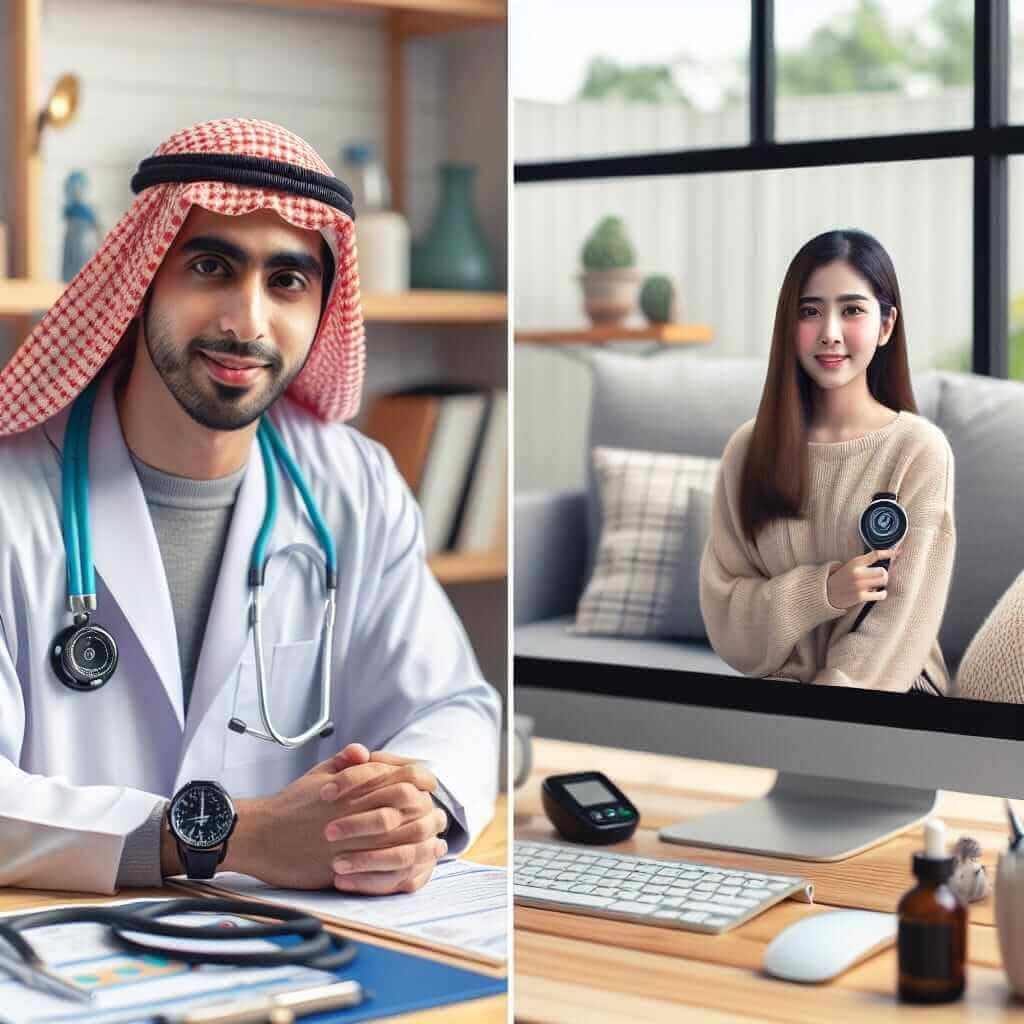The topic of “Technological advancements in healthcare” has increasingly appeared in IELTS Writing Task 2, especially in recent years as technology continues to evolve rapidly. According to data from various IELTS preparation websites, this topic has gained notable attention due to its relevance and the growing interest among test takers. Here are a few related prompts observed in past exam papers or practice tests:
- “Technological advancements in healthcare have significantly improved the quality of care provided to patients.”
- “To what extent do you agree or disagree with the statement: Technology has revolutionized the healthcare industry?”
- “Discuss the positive and negative impacts of technology on healthcare services.”
Given its recurring nature, it is crucial for IELTS candidates to be familiar with this theme. This article will choose one of the common prompts to create a model essay, analyze it, and offer useful insights and vocabulary.
Body
Chosen Prompt for Model Essay
Technological advancements in healthcare have significantly improved the quality of care provided to patients. To what extent do you agree or disagree with this statement?
Analysis of the Prompt
- Keywords: Technological advancements, healthcare, quality of care, patients.
- Key Aspects to Address:
- How technology has improved healthcare quality.
- Examples of technological advancements (e.g., telemedicine, medical devices, diagnostic tools).
- Potential drawbacks or challenges associated with technological integration.
- Task: To what extent do you agree or disagree. This requires a balanced discussion, presenting both positive aspects and possible negatives before concluding with your stance.
Model Essay
Technological advancements in healthcare have become a transformative force, reshaping the quality of care provided to patients. While some argue that these innovations have significantly improved healthcare outcomes, others believe that technology brings its own set of challenges. This essay will discuss both perspectives and conclude that the benefits of technological progress in healthcare far outweigh any drawbacks.
Firstly, modern technologies have revolutionized diagnostic and treatment procedures, leading to enhanced patient outcomes. For example, the development of imaging technologies like MRI and CT scans has enabled doctors to detect diseases at early stages, greatly improving the chances of successful treatment. Moreover, advancements in telemedicine have made healthcare more accessible, especially in remote areas. Patients can now consult with specialists from the comfort of their homes, receiving timely advice and reducing the need for travel.

Additionally, healthcare technology has contributed to improved patient safety and care management. Electronic Health Records (EHRs) facilitate streamlined communication between different healthcare providers, ensuring that patient histories are accurately recorded and easily retrievable. This minimizes the risk of errors and enhances coordination of care. Furthermore, wearable health devices allow continuous monitoring of patients’ vital signs, providing real-time data that can be crucial in managing chronic conditions.
On the flip side, there are concerns about the over-reliance on technology in healthcare. One major issue is the potential for data breaches, which can compromise patient privacy. As hospitals and clinics digitize patient records, they become targets for cyber-attacks. Additionally, the high costs associated with acquiring and maintaining advanced medical technologies may pose a financial burden on healthcare institutions, potentially leading to higher costs for patients.
In conclusion, while the integration of technology in healthcare does present some challenges, the overall impact on the quality of patient care is profoundly positive. Technological advancements have not only improved diagnostic and treatment capabilities but also enhanced patient safety and accessibility of services. Therefore, I firmly agree that these innovations have significantly raised the standard of healthcare.
Word Count: 334
Key Points to Remember When Writing About Technological Advancements in Healthcare
- Vocabulary: Use specific terms and phrases pertinent to healthcare and technology (e.g., MRI, CT scans, telemedicine, Electronic Health Records).
- Comparative Structures: Use phrases such as “on the other hand,” “despite the benefits,” and “one major issue” to present balanced arguments.
- Examples: Provide concrete examples to support your arguments, making the essay more persuasive and grounded in real-world scenarios.
Difficult Vocabulary to Remember
- Revolutionized (verb, /ˌrɛvəˈluːʃənaɪzd/): To fundamentally change or innovate.
- Telemedicine (noun, /ˈtɛlɪˌmɛdɪsɪn/): The remote diagnosis and treatment of patients through telecommunications technology.
- Wearable (adjective, /ˈwɛrəbl/): Refers to electronic devices that can be worn on the body.
- Streamlined (adjective, /ˈstriːmlaɪnd/): Improved efficiency and simplicity in operations or processes.
- Cyber-attacks (noun, /ˈsaɪbər əˌtæks/): Attempts to damage, disrupt, or gain unauthorized access to computer systems or networks for malicious purposes.
- Chronic (adjective, /ˈkrɒnɪk/): Referring to a long-lasting and persistent disease or condition.
- Diagnostic (adjective, /ˌdaɪəɡˈnɒstɪk/): Pertaining to the identification of the nature or cause of a health issue.
- Vital Signs (noun, /ˈvaɪtl saɪnz/): Clinical measurements indicating the state of a patient’s essential body functions (e.g., heart rate, temperature).
Conclusion
To summarize, technological advancements in healthcare are a frequently tested theme in IELTS Writing Task 2 due to their relevance and societal impact. By understanding the prompt, utilizing appropriate vocabulary, and structuring the essay effectively, candidates can confidently address this topic. Possible future prompts might include detailed discussions on specific technologies like AI in healthcare, robotic surgeries, or the role of big data in patient care.
For further practice, consider exploring related topics on this theme such as:
- “The impact of technological advancements on healthcare accessibility.”
- “The effects of technological advancements on healthcare delivery.”
These topics will expand your preparation and ensure that you are ready for any variation of this theme in the IELTS exam.